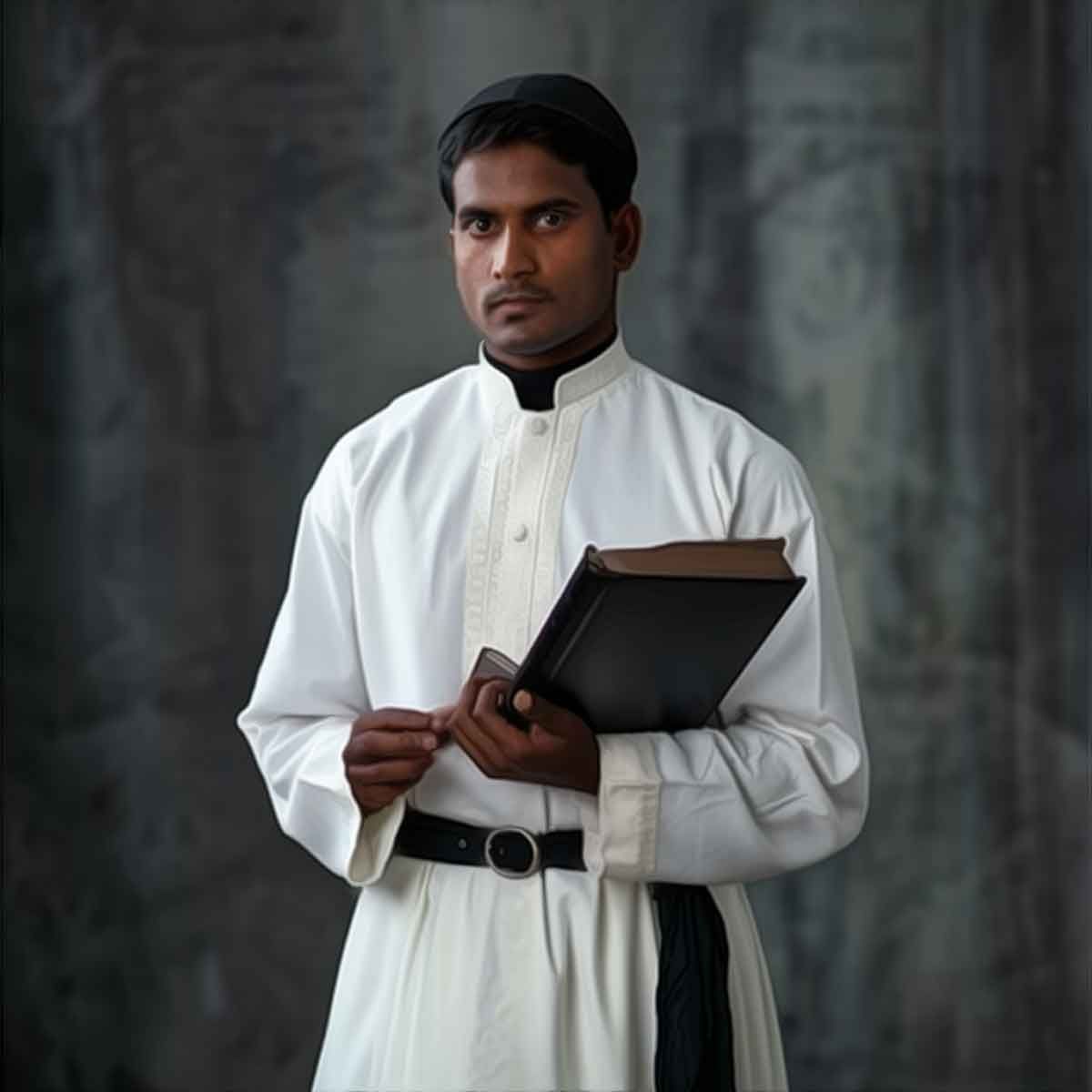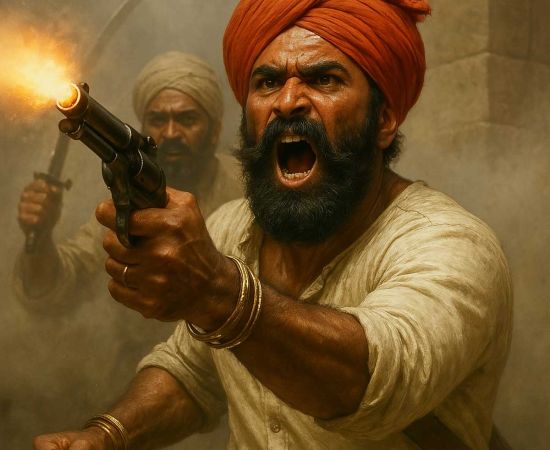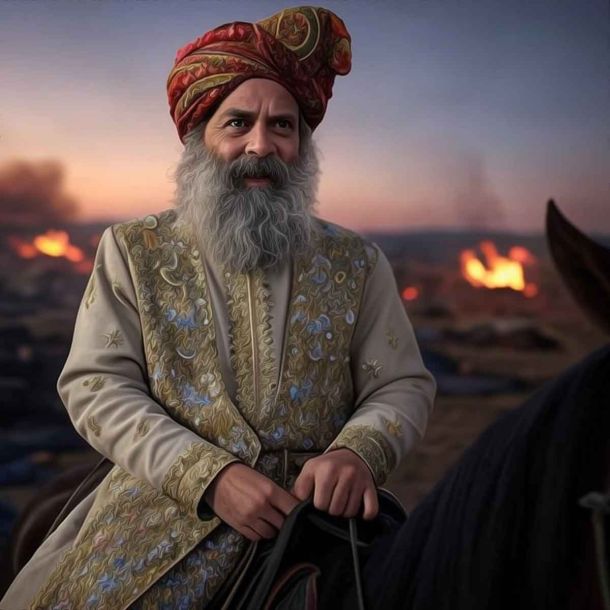MORE COVERAGE
Twitter Coverage
Satyaagrah
Written on
Satyaagrah
Written on
Satyaagrah
Written on
Satyaagrah
Written on
Satyaagrah
Written on
JOIN SATYAAGRAH SOCIAL MEDIA
"सारे इसाई भाई भाई": Kerala High Court lambasted Christian groups for defying court orders, directing district collectors to seize 6 churches in the Orthodox-Jacobite dispute, with Justice VJ Arun emphasizing strict enforcement to uphold court directives

In a significant ruling on August 30, the Kerala High Court intervened in a longstanding religious conflict involving two Christian factions by ordering the immediate transfer of ownership for six churches. These churches, which have been under the control of the Jacobite faction, are now mandated to be handed over to the state government, marking a pivotal development in the Orthodox-Jacobite dispute that has embroiled the Malankara Christian community.
The court's decision came as a response to a contempt petition filed by two vicars from the Orthodox group, who argued that the Jacobite faction had blatantly disregarded the court’s previous directives from 2022. These directives were meant to allow the Malankara Orthodox Church (Orthodox faction) peaceful entry and the ability to conduct worship services without hindrance. However, continuous interference by the Jacobite parishioners led to a judicial rebuke from Justice VG Arun, who criticized the "flagrant disobedience" that necessitated this drastic legal action.
Justice Arun, expressing his dismay over the ongoing disregard for judicial orders, articulated a forceful stance, stating, “The recalcitrant attitude of the official respondents and disregard of the directions by the party respondents (Jacobite faction members) leaves this court with no option but to issue directions for preventing the contemptuous acts.” This statement underscores the judiciary's commitment to enforcing its rulings and ensuring compliance among the disputing parties.
As part of the court order, specific churches have been listed for transfer to governmental control. These include St. Mary’s Orthodox Church in Odakkali, St. John’s Besphage Orthodox Syrian Church in Pulinthanam, and St. Thomas Orthodox Syrian Church in Mazhuvannoor, all under the Angamaly diocese. Additionally, St. Mary’s Orthodox Church at Mangalam Dam, St. Mary’s Orthodox Syrian Church at Erickinchira, and St. Thomas Orthodox Syrian Church at Cherukunnam, which fall under the Thrissur diocese, are also to be seized by the district collector of Palakkad.
This directive follows a previous order from the Supreme Court, which had also instructed the state government to take control of these disputed religious sites. Unfortunately, the state government's lack of compliance with the Supreme Court's order has only further complicated the resolution of this dispute, prompting the High Court to step in decisively.
In an ongoing effort to enforce its rulings, Justice V J Arun of the Kerala High Court has not only issued a temporary injunction but also explicitly outlined the roles and responsibilities of various government officials to ensure that the court's orders are implemented without delay. The justice mandated that the district collectors are to retain possession of the keys to the churches involved in the dispute between the Orthodox and Jacobite factions, a clear directive aimed at maintaining order and control over these religious sites.
Moreover, in a move to ensure the safety and security of these operations, Justice Arun has ordered district police chiefs to allocate sufficient police forces to assist the district collectors in executing these directives. This level of judicial intervention highlights the court's determination to see its decisions upheld, reflecting its proactive stance in managing this delicate issue. The court has scheduled the next hearing for this case on 30th September, with both district collectors required to submit compliance reports by this date, thus maintaining a tight schedule for resolution.
This phase of enforcement follows an unfortunate series of non-compliance from earlier mandates. On 8th July, the court had instructed the police to develop and execute a clear plan of action concerning the church's possession. Regrettably, as the court noted, this plan was largely disregarded. The opposing parties contended, mistakenly according to the judge, that a 2017 court order had directed the handover of church control to the Orthodox faction. They argued that the provision for police protection, intended to facilitate access for the petitioners, was founded on these misinterpretations, although the initial ruling did not specifically authorize such a directive.
Adding to the complexity of the situation, state authorities reported significant obstacles in executing the court's orders due to physical blockades at church entrances by a considerable number of Jacobite parishioners, including elderly men, women, and children. The state claimed that despite earnest efforts to comply with judicial directives, it had to retreat in the face of intense protests by the Jacobites, which raised concerns about potential fatalities should further state intervention be attempted. Representatives from the Jacobite faction in court also argued that the 2022 decree to transfer church control was incorrectly issued, maintaining that the properties should not be handed over to the Orthodox faction. However, these objections were ultimately dismissed by the court.
The complexities of enforcing court orders in cases involving community and religious sentiments were further highlighted during the recent court proceedings regarding the Orthodox-Jacobite church dispute. Additional Advocate General Ashok M. Cherian argued that the government should not be held in contempt despite the failure to fully enforce the court's ruling, citing that significant efforts were made. According to him, the presence of police was necessary, but they were forced to withdraw following widespread unrest at the church premises. This presents a scenario where the intent to comply by the authorities was clear but was met with substantial public resistance.
In response to these developments, the court issued a stern reminder of the foundational principles that govern its operations and the broader judicial system. It stated emphatically, “Disobedience of court orders strikes at the root of the rule of law on which the judicial system rests. If conduct which tends to bring the authority of the court and the administration of law to disrepute is allowed to be perpetuated that will result in the entire system being maligned. It is the bounden duty of every court to uphold the majesty of law and maintain the purity of the system. The law is equally applicable to the mighty and the meek, the powerful and the powerless and has to be applied without fear or favour, prejudice or predilection.” This declaration serves as a robust affirmation of the court’s commitment to maintaining the rule of law and ensuring that its authority is not undermined by noncompliance or disrespect.
Further complicating matters, the court took the unusual step of suo motu (on its own motion) impleading the district collectors in the case as respondents. This move underscores the court's proactive approach in seeking accountability and compliance with its directives. By involving the district collectors directly, the court aims to tighten the enforcement mechanism and ensure that there are no gaps in the execution of its orders.
Background of the Controversy
The protracted conflict between the Malankara Orthodox Syrian Church and the Jacobite Syrian Christian Church, commonly referred to as the Orthodox-Jacobite church dispute in Kerala, traces its roots back to the early 20th century. This longstanding feud has escalated over decades, evolving from a mere disagreement into a series of intense court battles and even physical confrontations, reflecting the deep-seated tension that now characterizes their relationship.
Originally, the Orthodox and Jacobite factions were part of the same religious community. However, a significant rift formed over questions of allegiance and ecclesiastical authority, leading to their eventual separation. The crux of their dispute centers on whom the church should recognize as its spiritual leader. The Jacobite faction chose to remain loyal to the Patriarch of Antioch, seeing him as their supreme spiritual authority. On the other hand, the Orthodox faction pledged their allegiance to the Malankara Metropolitan, a local bishop in Kerala, insisting on a more localized ecclesiastical governance.
The disagreements escalated to legal confrontations concerning the right to manage certain church properties in Kerala. This dispute reached the Supreme Court of India, which became a pivotal player in their ongoing conflict. In a landmark decision in 2017, the Supreme Court ruled in favor of the Orthodox church regarding several key disputes, citing the 1934 Constitution of the Malankara Church. The court also invalidated a 2002 statement by the Jacobite faction that attempted to establish a parallel governance structure for the churches, affirming that such efforts were unconstitutional.
Despite the Supreme Court's ruling, the Orthodox group has consistently voiced concerns that the 2017 decision has not been fully implemented. This lack of enforcement has led to further legal actions, including the current contempt petition filed by the Orthodox faction with the Kerala High Court. They argue that the Jacobite parishioners continue to obstruct their access to the disputed churches, thereby preventing them from holding religious services as entitled by the court's earlier rulings.
In response to these ongoing issues, a single judge of the High Court in 2022 reaffirmed the need for police support to ensure that the Orthodox faction could peacefully enter and conduct services in the contested churches. Justice Arun, addressing the matter, explicitly dismissed the Jacobite faction's objections to the enforcement of the court's orders. He emphatically stated, "Such disrespectful acts would malign the entire judicial system."
 Support Us
Support Us
Satyagraha was born from the heart of our land, with an undying aim to unveil the true essence of Bharat. It seeks to illuminate the hidden tales of our valiant freedom fighters and the rich chronicles that haven't yet sung their complete melody in the mainstream.
While platforms like NDTV and 'The Wire' effortlessly garner funds under the banner of safeguarding democracy, we at Satyagraha walk a different path. Our strength and resonance come from you. In this journey to weave a stronger Bharat, every little contribution amplifies our voice. Let's come together, contribute as you can, and champion the true spirit of our nation.
 |  |  |
| ICICI Bank of Satyaagrah | Razorpay Bank of Satyaagrah | PayPal Bank of Satyaagrah - For International Payments |
If all above doesn't work, then try the LINK below:
Please share the article on other platforms
DISCLAIMER: The author is solely responsible for the views expressed in this article. The author carries the responsibility for citing and/or licensing of images utilized within the text. The website also frequently uses non-commercial images for representational purposes only in line with the article. We are not responsible for the authenticity of such images. If some images have a copyright issue, we request the person/entity to contact us at This email address is being protected from spambots. You need JavaScript enabled to view it. and we will take the necessary actions to resolve the issue.
Related Articles
- "Haleluiah": In Kerala, Sibin, Ebin, and Justin from Kasargod arrested for using AI to create and distribute nude images of 150 women, including churchgoers, after stealing pictures of females from their village and surrounding areas from social media
- Christian Missionaries using new techniques of ‘inculturation’ to ‘indoctrination’ to convert Hindus
- Outrage in Kerala: Sidharth, a bright Veterinary student brutally assaulted with iron rods-barbed wire, paraded naked, and starved for 3 days by SFI goons for dancing with girls on Valentine's Day, later found hanging, 6 SFI members arrested, 12 suspended
- "Your mother taught you to outperform me often, my mother helped me outlive you once": In Pondicherry, a Christian woman poisoned a Hindu boy Bala Manikandan because he outperformed her daughter Arul Mary in academics and extracurricular activities
- Why Hindus not claiming their temples back from the Government control: Is pro-Hindu govt will always be in power
- How order of Supreme Court Allowing Non-Hindus To Own Shops In Hindu Institutions can be challenged
- Jo Chopra, an NGO Director misled about Christmas being banned in Uttarakhand to malign Hindutva, apologizes after being called out
- "A leader is one who knows the way, goes the way, and shows the way": Swapna Suresh, the prime accused in the gold smuggling case, alleged that Kerala Chief Minister Pinarayi Vijayan helped the UAE consulate in facilitating the escape of a terrorist
- In Lucknow’s Gomti Nagar, Hindus protest against illegal Christian conversion activities, alleging coercion, threats, and job offers to change religion, police face criticism for inaction despite complaints and connected church-like houses in the colony
- State Police arrested Kerala based Christian pastor couple of forcefully converting over 1000 Hindu Adivasis working in the coffee estates of Kodagu district: Anti-conversion ordinance becomes reality in Karnataka
- In a noble charitable practice St. Francis Sevadham Christian ‘orphanage’ forced Hindu minors consume beef and read the bible
- "As the facts change, change your thesis. Don't be a stubborn mule, or you'll get killed": NIA conduct raids across 56 locations in Kerala in houses of banned terror outfit PFI workers who were collecting funds and trying to commit acts of terror in India
- "घर का चिराग": Introvert Affan unleashed horror in Venjaramoodu, killing his grandmother, uncle, aunt, girlfriend, and 13-year-old brother—whom he fed his favorite meal before murder—leaving his cancer-stricken mother critical, then surrendered
- "Aur kab tak - Golden Via Kochi Horror Saga": Ajumon and Majeed deceptively sold and transported two Kerala women Rekha and Usha to Arab families in Kuwait, where they were locked up, abused, starved, tortured, and physically assaulted, finally rescued
- "The root of all superstition is that men observe when a thing hits, but not when it misses": Two doctors found keeping their mother’s corpse at home in the belief that she can be resurrected through prayers, family was converted to Christianity recently



























